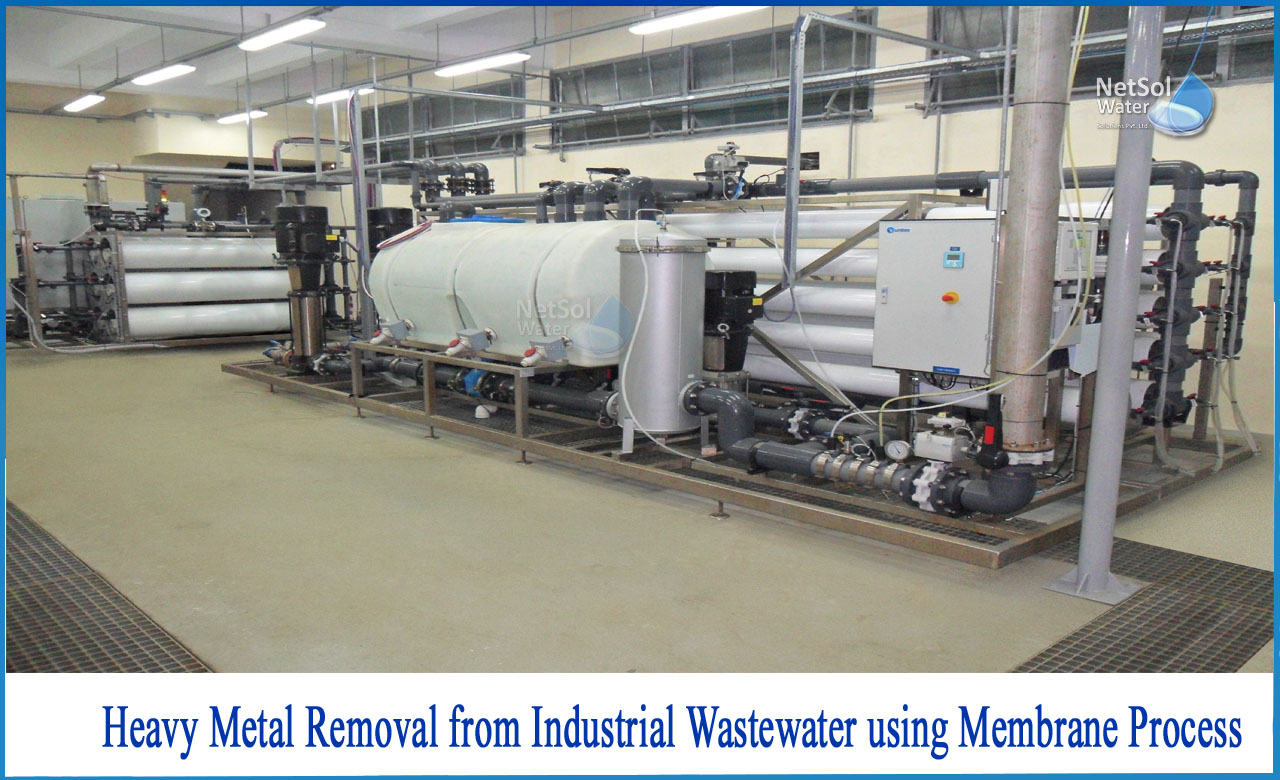How to remove Heavy Metal from Industrial Wastewater?
Heavy metal-bearing industries, such as Cd, Cr, Cu, Ni, As, Pb, and Zn, are the most hazardous among chemical-intensive sectors due to the discharge of enormous amounts of metal-contaminated wastewater. Heavy metals can be absorbed by living organisms due to their high solubility in watery conditions. Large amounts of heavy metals may accumulate in the human body once they reach the food chain. When metals are consumed in excess of the permissible concentration, they can cause major health problems.
As a result, metal-contaminated wastewater must be treated before being discharged into the environment. Conventional treatment procedures such as chemical precipitation, ion exchange, electrochemical removal, flotation and adsorption can remove heavy metals from inorganic effluent.
To achieve technology-based treatment criteria, innovative techniques for treating industrial wastewater containing heavy metals generally include technologies for toxicity reduction.Innovative physico-chemical removal techniques such as membrane filtration, electrodialysis, and photocatalysis are given special attention.
Sources of industrial wastewater
Heavy metal-containing industrial effluent streams are generated by a variety of businesses. Heavy metals (such as cadmium, zinc, lead, chromium, nickel, copper, vanadium, platinum, silver, and titanium) are produced in substantial quantities by electroplating and metal surface treatment techniques in a range of applications.
Conversion coatings, anodizing cleaning, milling, and etching are just a few examples. Printed circuit board (PCB) manufacture is another significant source of heavy metals waste.
The most common resistive overplates are tin, lead, and nickel solder plates. Other sources of metal wastes include the wood processing industry, which produces arsenic-containing wastes from chromated copper-arsenate wood treatment; inorganic pigment manufacturing, which produces pigments containing chromium compounds and cadmium sulphide; petroleum refining, which produces conversion catalysts contaminated with nickel, vanadium, and chromium; and photographic operations, which produces film with high silver and Ferro cyanide concentrations.
All of these generate a considerable volume of wastewater, residues, and sludge’s that are classified as hazardous wastes and require extensive wastewater treatment.
The MCL standards, for heavy metals, established by USEPA are summarized as:
|
Filtration and separation using membranes
Membranes have become more widely used for filtration and extraction of heavy metal ions from wastewater as technology has progressed.
Reverse osmosis (RO) is a process that purifies wastewater by removing heavy metals!
RO is a pressure-driven separation method that uses a semi-permeable membrane with a pore size of 0.5–1.5 nm to allow only smaller molecules to pass through. Adding pressure of 20–70 bar, greater than the osmotic pressure of the feed solution, the Reverse Osmosis process reverses the typical process of osmosis. The molecular size of the solutes that are inhibited is usually between 0.00025 and 0.003. Inorganic salts as well as charged organics may be extracted in 95–99 percent of cases using the RO (reverse osmosis) process.
Conclusions and suggestions
The best method for removing heavy metal ions from wastewater is determined by a number of criteria, including the cost of operation, the initial concentration of metal ions, environmental impact, pH values, chemicals used, removal efficiency, and economic feasibility.
Adsorption treatments, membrane treatments (i.e., reverse osmosis), chemical treatments (i.e., chemical precipitation, coagulation-flocculation, and flotation) and electric treatments are some of the techniques.Membrane approaches are the most commonly discussed methods.
What can we offer?
We at Netsol Water use innovative tactics to create the business, i.e., Commercial & Industrial RO Plants that we make available to our consumers. This item is capable of removing pollutants as small as 0.0001 µ (i.e. 0.00000004 inches), thanks to an unusual, semi-permeable RO film.
Netsol Water is Greater Noida-based leading water & wastewater treatment plant manufacturer. We are industry's most demanding company based on client review and work quality. We are known as best commercial RO plant manufacturers, industrial RO plant manufacturer, sewage treatment plant manufacturer, Water Softener Plant Manufacturers and effluent treatment plant manufacturers. Apart from this 24x7 customer support is our USP. Call on +91-9650608473, or write us at enquiry@netsolwater.com for any support, inquiry or product-purchase related query.



